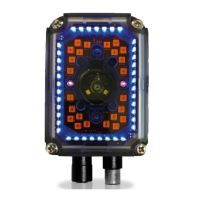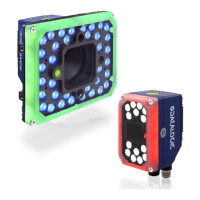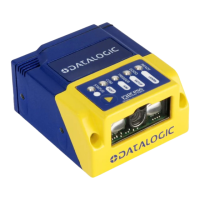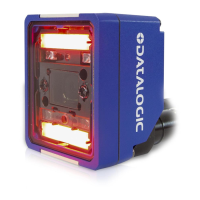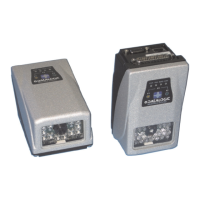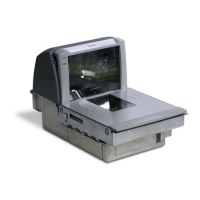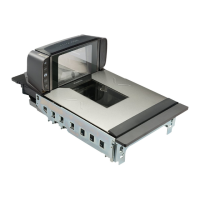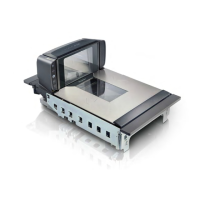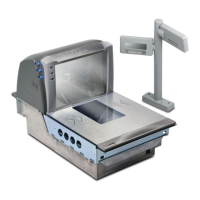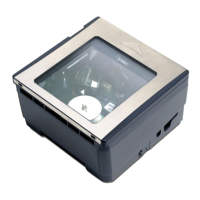Maximum Line Speed and Exposure Time Calculations
Product Reference Guide 133
Maximum Line Speed and Exposure Time Calculations
The
Exposure Time
(or Shutter) parameter defines the time during which the
image will be exposed to the reader sensor to be acquired. This parameter
depends heavily on the environmental conditions (external lighting system,
image contrast etc.).
In general, a longer time corresponds to
a lighter image but is susceptible to
blurring due to the code movement; a shorter exposure time corresponds to a
darker image.
NOTE
Assuming:
• X: Code
Resolution (mm)
• T
exp
: Exposure Time (s)
• LS:
Line Speed (mm/s)
The essential condition to avoid blurring effects between two adjacent elements
i
n a dynamic reading application is:
LS T
exp
X
The maximum (theoretical) line speed LS ca
n be calculated as follows:
X / T
exp (min)
= LS
(max)
T
exp
(min)
is the minimum
Exposure Time
value obtainable for the specific
application. It can be evaluated in static reading conditions and depends on the
Matrix reader model selected for the application (internal lighting system, optical
lens, reading distance) and on any external lighting system. It may also depend
on code printing quality, and reader position.
Example:
A Matrix 300N using:
Internal Lighting Mode = Very High Power Strobe
Exposure Time = 100 s
Code Resolution (X) = 0
.254 mm (10 mils)
has a maximum line speed of:
0.254 (mm) / 0.0001 (s) = 2540 mm/s
The following considerations must be applied only when the internal lighting system
and 2D codes are used. The Maximum line speed allowed for linear codes or postal
code reading applications heavily depends on the direction of symbol movement.
When the direction of movement is parallel to the elements of the code, the maxi-
mum speed is greater.
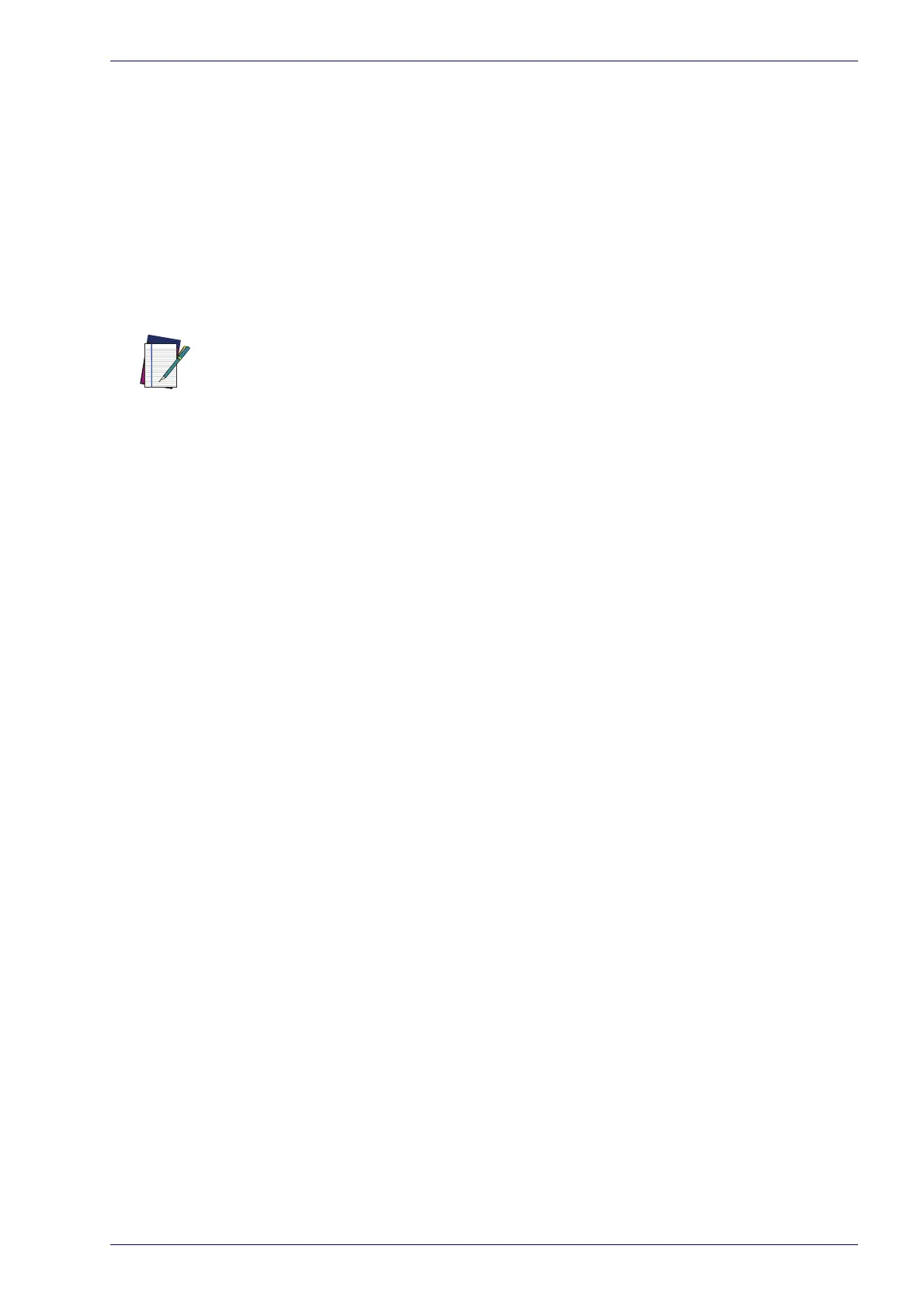